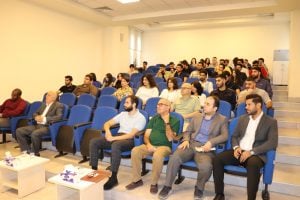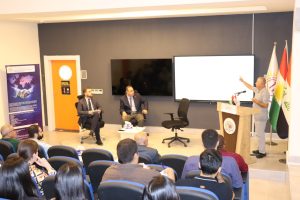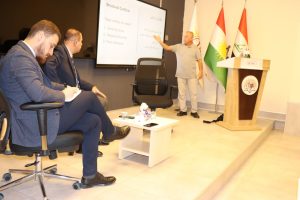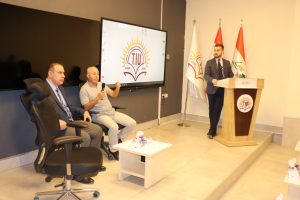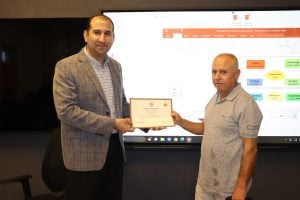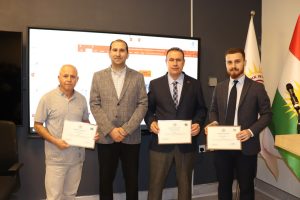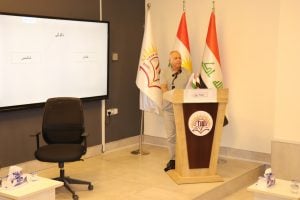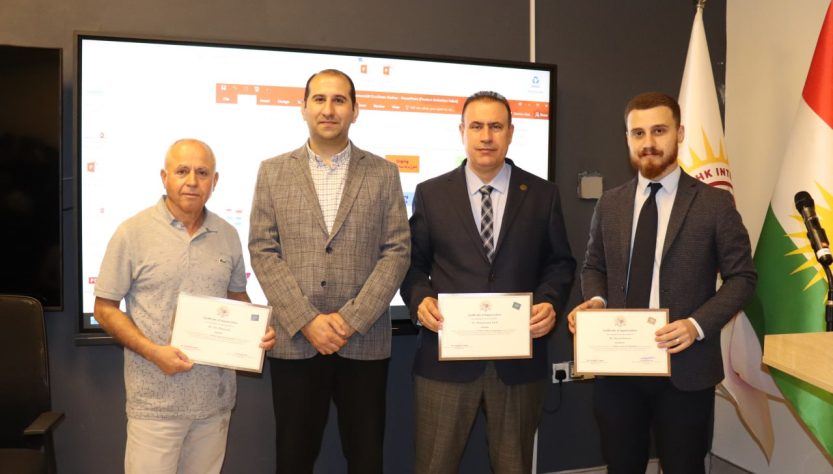Shayan: On October 16th, 2023, the International Relations and Diplomacy Department organized an international workshop on “Conflicts: Types and Implications.” The workshop began with a welcome address by the moderator, Mr. Bayad Sarwar, who introduced the two distinguished speakers, Dr. Ali Mazoudji, a Vienna-based scholar, and Dr. Mohammad Salih Mustafa, the Head of the IRD Department.
The first distinguished speaker, Dr. Ali Mazoudji, explained the concept of conflict, its types, and its implications for the stability and progress of society. He categorized conflicts into intrapersonal, interpersonal, and structural conflicts. Intrapersonal conflict is divided into conflicts of motivation, conflicts of decision, roles, and psychical conflicts. Interpersonal conflict is divided into factual conflict, conflict of interest, conflict of relationship, and conflict of values. Social-structural, religious-structural, and public-structural conflicts are structural conflicts. Dr. Mazoudji also took the audience through the nine levels of conflict escalation: tension, debate and polemic, actions instead of words, images and coalitions, loss of face, threat strategies, limited destruction, demolition, and together into the abyss.
The second distinguished speaker, Dr. Mohammad Salih Mustafa, explained the reasons leading to social conflicts: jealousy, greed, power, and control. He also traced the origin of conflict to human nature while referring to the ideas of Thomas Hobbes, John Locke, and Jean-Jacques Rousseau on social contract theory as the arrangement or agreement that provided a platform for the management of conflicts, protection, and promotion of the welfare of people. This contrasts with what was obtained in the state of nature, which was similar, in all ramifications, to anarchy. Dr. Mustafa further identified and explained the conflicts that have characterized the Middle East thus far as religious and sectarian-rooted conflicts, the Kurdish issue and wider conflicts, the Israeli-Palestinian conflict, the new Shiite-Sunni conflict, the Arab-Arab conflict, the Turkey-Iran conflict, the Turkey-Arab conflict, etc.
The distinguished speakers gave the following recommendations:
- Ensuring fair and effective political leadership.
- Creating an atmosphere of communication, empathy, compromise, and a shared focus.
- Respect for Diversity.
- Ensuring social and distributive justice.
The Q&A session followed, where the speakers answered all the questions asked by participants, including TIU academics, students, and international participants. Finally, certificates of appreciation were given to the speakers and moderator by the Vice Dean of the Faculty of Administrative Sciences and Economics, Mr. Karwan Sherwani.
